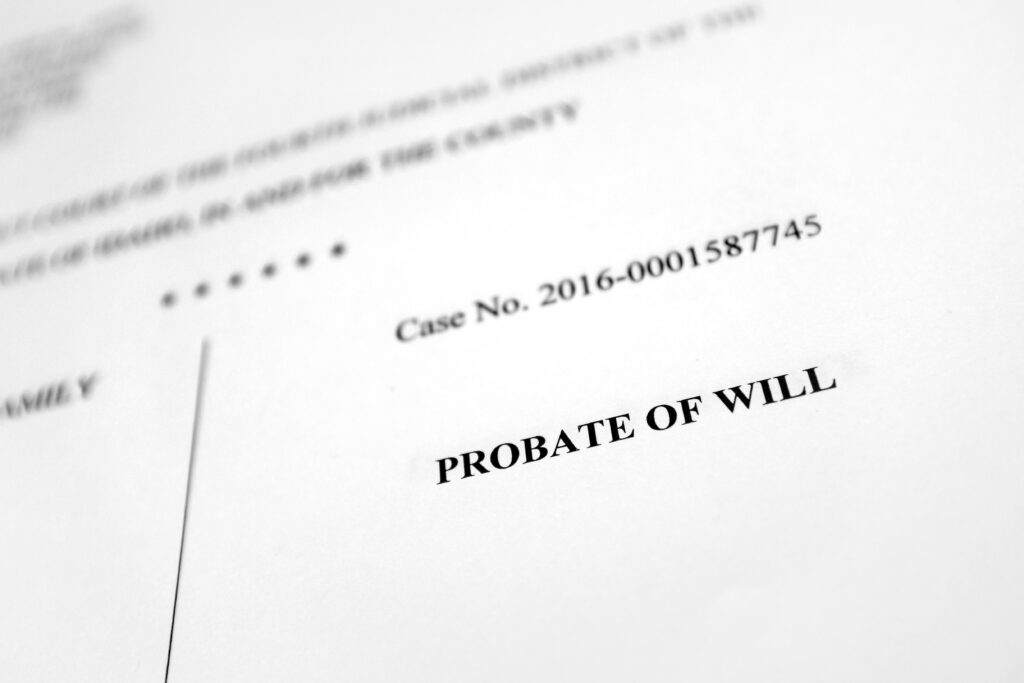Will and Last Wills
Protect Your Estate.
Why Is a Will Important?
A will is a legal document that expresses your wishes as to how your estate will be distributed after you die and as to who will manage your estate until its final distribution (executor).
Simply put, this document helps in determining what happens to your physical body and assets (e.g., house, car, furniture, electronics, jewelry, cash, bank accounts, investments, and business interests) after your death.
What Happens to Assets Without a Will
State and Local laws determine the legal effect of not having a will and who take swhat if you die without a will. Let’s use, Travis County, TX , as an example, here is a great chart that explains what will happen after you die:
- Who will inherit the wife/husband’s personal property obtained before marriage upon the wife/husband’s death? Spouse gets ⅓ and children get 2/3. Sound unfair?
- Who will inherit the wife/husband’s personal real estate obtained before marriage upon the wife/husband’s death? Spouse gets ⅓ of the life estate and children get ⅔ which is subject to spouse’s ⅓. Sound unfair?
- Who will inherit the community property of husband and wife if one party dies? 100% to the surviving spouse. If your community residential house is purchased with your parents’ downpayment, then your spouse gets 100% and your parents get nothing, sound unfair?
- For newly married families without children, if there is separate personal property, it will go to the spouse. For separate real property, the father gets 1/4, the mother gets 1/4, and the surviving spouse gets 1/2. Sound unfair?
If you do not like these arrangements and they do not seem fair in your family situation, then you need a will in place.
With a Will in place – YOU decide who takes what in what percentage!

What Else Can a Will Protect?
A will is a legal document that allows an individual to specify how they would like their assets to be distributed after their death. In addition to specifying the distribution of assets, a will can also accomplish the following:
- Appoint a guardian for minor children: If a person has minor children, they can use their will to appoint a guardian who will take care of the children in the event of their death.
- Appoint an executor: A will can also appoint an executor, who is responsible for managing the deceased’s estate and carrying out the instructions specified in the will.
- Create trusts: A will can be used to create trusts, which can provide ongoing support for beneficiaries, such as children or grandchildren, or to provide for the care of a disabled loved one.
- Make charitable donations: A will can be used to make charitable donations to organizations or causes that the deceased supported during their lifetime.
- Provide for pets: A will can also provide for the care of pets, including specific instructions on how they should be cared for, and who should take care of them.
- Specify funeral arrangements: A will can include instructions on how the deceased would like their funeral and burial arrangements to be handled.
It’s important to note that a will does not cover all assets and it does not take effect until death. It’s always best to consult a lawyer to ensure your will is legally binding, and to review and update it regularly.

What Isn’t Protected by a Will?
A will not help you avoid probate court.
Most people think that if I have a will, then my beneficiary do not need to go through a probate proceeding, wrong! You cannot avoid the probate process with a will, but only with a living trust. The will just make the probate process simpler because the judge only needs to determine if the will is valid and follows your desire.

What is Probate?
Why does everyone want to avoid probate court?
Probate is the legal process of administering and distributing a deceased person’s assets and property. The probate court oversees the distribution of assets to the deceased person’s heirs and beneficiaries as outlined in their will or according to state laws if they died without a will.
Probate can be a time-consuming and costly process, and there are several reasons why individuals may want to avoid it:
- Time-consuming: Probate proceedings can take several months or even years to complete, depending on the complexity of the estate and any disputes that may arise.
- Expensive: The costs associated with probate can be high, including court fees, attorney fees, and other expenses.

The Cost of Probate
Probate Cost is 2%-5% of the Estate
This means for a $2 million estate, costs will be $40,000, including the following fees:
- Surety bond ($0-$10,000):
- Certificates ($5-$20 per certificate)
- Filing fee ($50-$1,200):
- Appraisal fee
- Newspaper publication
Probate cost does not include probate attorney fees!
Additional Disadvantates of Probate
- Lack of privacy: Probate proceedings are a matter of public record, which means that the details of the deceased’s estate and the distribution of their assets will be made known to the public.
- Limited control: Probate proceedings are typically controlled by the court, which means that the deceased’s wishes may not be carried out exactly as they had intended.
- Risk of disputes: Probate proceedings can be a source of conflict among family members and other heirs, which can lead to legal disputes and further delay the distribution of assets.
- Potential of the estate tax or other taxes: Probate proceedings can also lead to estate taxes and other taxes which could be avoided by proper estate planning.
There are different ways that one can avoid probate, such as transferring assets to a living trust, setting up a payable-on-death account or a transfer-on-death account, and setting up joint ownership. It’s always best to consult a lawyer or a financial advisor to understand the best options for your situation.
What Should I Know About Writing a Will?
A lot of people are tempted to write their own will or use an online template to do so. This can work for some people — for example, if you are unmarried and want to divide your estate equally among your adult children.
There are several reasons why it is not recommended to use a template to make a will:
- Lack of Customization: A template will typically provide a general format for a will and may not take into account the unique circumstances and needs of the individual. Using a template may not cover all the assets and does not address all the specific wishes of the testator.
- Inadequate Legal Protection: Templates may not be legally binding or may not comply with state-specific laws, which can lead to issues with the validity of the will and the distribution of assets.
- Lack of Professional guidance: Templates do not provide the guidance and expertise of a legal professional who can advise on the best way to structure a will and ensure that it is legally binding.
- Risk of errors: Templates may contain errors or omissions that could lead to complications or disputes in the distribution of assets.
- Outdated or not updated: Templates may not be updated to reflect the most recent laws and regulations, which can lead to issues with the validity of the will.
It is always best to work with a qualified attorney to create a will, as they can provide personalized legal advice and ensure that your will is legally binding, compliant with state laws, and addresses your specific needs and wishes.
We do things right at first time, so ultimately you save time and money to fix your important paperwork.

